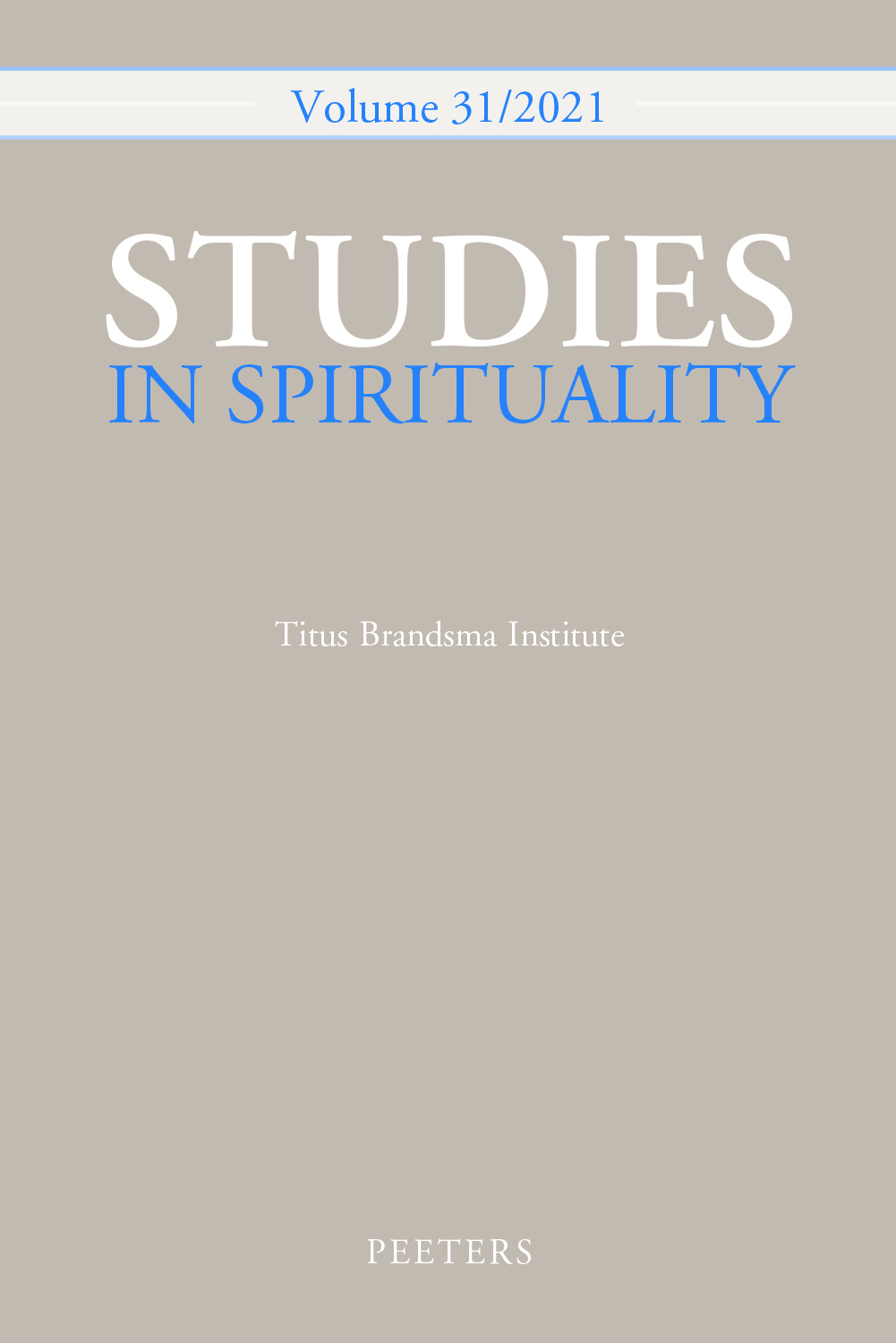 previous article in this issue previous article in this issue | next article in this issue  |

Preview first page |
Document Details : Title: At the Boundary of Imagination Subtitle: Rainer Maria Rilke and the Poetics of Theological Negation Author(s): BURROWS, Mark S. Journal: Studies in Spirituality Volume: 10 Date: 2000 Pages: 33-50 DOI: 10.2143/SIS.10.0.505259 Abstract : This paper explores the shape of theological negation -the so-called via negativa, or apophatic approach - in the early poetry of Rainer Maria Rilke, focusing particularly on his Book of Hours (1905). After framing this intellectual and spiritual approach within the western Christian tradition, we come to meet Rilke's dark and faceless 'God', not in conventional theological terms but trough the poet's intuition and reflection upon the One who begins to appear, 'hesitantly... at the edges of [his] sensibility'. He concerns himself in these poems with our deeply natural or instinctive need to 'paint' God in our own terms, and identifies the terrifying moment when he realizes God refuses to be so tamed by us. In this move, we begin to see how Rilke turns the western tradition on its head, wondering as he does if 'God' will 'die' with us. And, as if anticipating Paul Tillich's apology for the 'courage to be' in the face of this dark possibility, Rilke suggests that the encounter of the human self with this apparently empty darkness is precisely the place where we might find the courage to believe. But as with Tillich in a later age, Rilke's faith is in a different 'God' than the domestic deity of self-projection, the one whom we paint in our own image. These poems often stand as prayers offered to the God Rilke yearns for at the boundaries of knowledge, the 'neighboring God' who is closest to us in the terrors of night and whose true being 'darkens in the depths' of our own experience. It is here at the boundary of imagination, that Rilke's poetics offers the path of theological negation as an expression of faith on the far side of modern theism |
|


